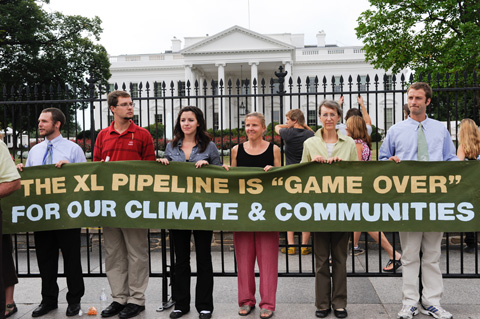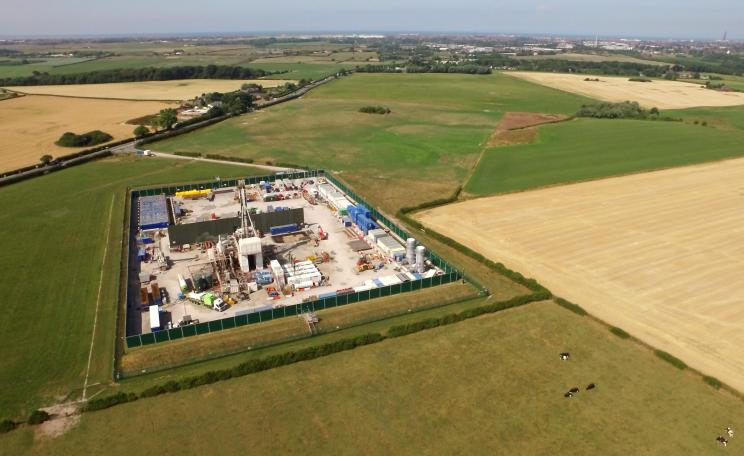The report [PDF], authored by the environmental nonprofit Global Forest Watch, looked at more than 15 years of data on recorded environmental mishaps by oil sand's companies, tracking the follow-up actions taken and the final verdict on fines.
The findings are shocking and come at a very inconvenient time for government and industry supporters of the Keystone XL pipeline project that would greatly increase tar sands processing and shipments to the United States.
Of the more than 4,000 infractions reported, less than 1 percent (.09 to be exact) received an enforcement action (that would be less than 40 of 4,000). Compare this the EPA, who has an enforcement rate of 16 percent for similar infractions by companies under the Clean Water Act.
Global Forest Watch also found that the median fine for environmental infractions in the oil sands over the past 16 years was $4,500. If you were an oil-sands player like ExxonMobil, who reported a profit last year of $44.9 billion, would you change your ways over a $4,500 fine?
Royal Dutch Shell Oil's CEO, another big player in the oil sands, probably spent $4,500 on golf and dinner yesterday.
TransCanada, the company trying to convince President Obama to approve the construction of the Keystone XL pipeline, was out last week touting Canada as a world leader in environmental protection. TransCanada wrote in the Globe and Mail that:
The only relevant question is whether the U.S. wants to source its heavy oil from Canada, a friendly and stable ally with strict environmental standards, or from other suppliers whose interests are not aligned with those of the United States and have limited or no environmental standards.
Relevant question indeed, and here's the answer: Canada does not have "strict environmental standards" at all and this report puts even more pressure on President Obama to not approve the Keystone XL pipeline.
Kevin Grandia is a researcher and writer on environment and human rights issues. He is the president of Spake Media House Inc., a consulting firm that brings online power to nonprofits, campaigners, and advocacy groups.
| READ MORE... | |
 |
INVESTIGATION Tar sands: tearing the flesh from the Earth As the price of oil increases again, Canada's tar sands once more look like a giant cash cow to the industry. Now, the only thing standing between the 400 ton bulldozers and rampant environmental destruction may be a small group of First Nations people... |
 |
NEWS Canada tar sands industry ignoring toxic river pollution Study contradicts Alberta government and industry claims that pollutants are from natural sources and not from the expanding production of oil from tar sands |
 |
INVESTIGATION Could politicians be charged with 'ecocide' if they approve tar sands pipeline? A law of ecocide could potentially see politicians who approve environmentally-damaging projects, like the tar sands pipeline between the US and Canada, face a court trial |
 |
NEWS ANALYSIS Anti-extraction movement in the US gains momentum Protests against fracked-gas pipelines in Pennsylvania and New Jersey are part of a growing movement of direct-action resistance to extraction. Insider Eric Moll reports from the Frontline of the resistance |
 |
NEWS ANALYSIS Tar sands blockaders: an insider’s story What’s it like to stop the talking and put your life on the line for what you believe in? Activist and reporter, Eric Moll, has joined the Tar Sands Blockaders who have been protesting over the laying of TransCanada’s XL Keystone pipeline in Texas since April. Here he reveals just how brutal the authorities are with the ‘hippies’ protesting over the corporation’s damage to the environment |





